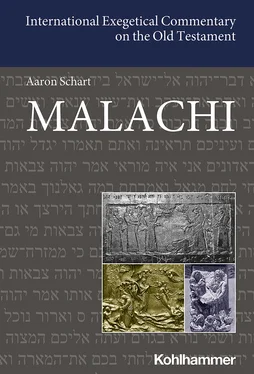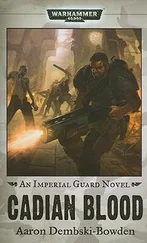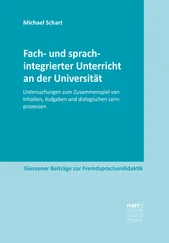In the wake of that utopian prospect of eschatological peace, Malachi turns back to the sorrowful present: abuses in the temple, among the priesthood and the laity, the crumbling of marriages and families, exploitation of the personae miserae , and the irritating success of the impious. This sober view of current problems makes it clear that the eschatological vision is not given in order to turn attention away from daily economic and cultic decisions in the present. Rather, its purpose is the resolution of real problems.
Individual requital The sixth disputation speech augments the vision of Zech 14 with the important aspect of “individual” requital. While Zech 14 takes whole nations and Yhwh’s dealing with them as its subject, in Mal 3:13–21 [3:13–4:3 ET] the focus is on groups to which individuals may want to belong or from which they should distance themselves.
Original connection to Zechariah 1–8? It is often proposed that the Malachi document (or one of its literary presucursors) originally connected to Zechariah 1–8, and that chapters 9–14 of Zechariah were added later. The main reason for the thesis is that, while the Malachi document displays many references to Haggai and Zechariah 1–8, there are very few to Zechariah 9–14. 26On the other hand, there is much to be said in favor of the position that the superscription in Mal 1:1 imitates the superscriptions in Zech 9:1; 12:1, with the addition of a personal name. Moreover, the generic designation משׁא is more appropriate to Zech 9–14 than to a collection of disputation speeches. If we follow those arguments, we must conclude that the Malachi document was intended from the outset to direct readers back from the eschatological depictions in Zech 14 to the problems connected to Torah observance in the present.
The frame: Hosea–Malachi It is often proposed that Hosea and Malachi constitute a frame around the Book of the Twelve. 27“In fact, what frames the collection of the Twelve Prophets is the theme of Yhwh’s indestructible love for his people.” 28Like Hosea, the Malachi document criticizes the cult. There is an especially strong link between their criticisms of the priesthood, whereby both Hos 4 and Mal 2:1–9 emphasize that the priests are not carrying out their real duty, that is, teaching the people the “Torah,” There are insufficient indications that the author of the basic Malachi document planned his own writing as a literary counterpart to Hosea, but it is quite conceivable that the Malachi document was placed where it stands because it contains formulations and ideas that can be linked to Hosea.
Completion of Thematic Lines
Criticism of the cult Being in the final position in the Book of the Twelve, the Malachi document provides concluding treatments to certain themes already dealt with in the writings that precede it and takes the opportunity to stress some especially important points once again. Thus, for example, Mal 1:6–2:9 presents the most extended cult-critical passage in the Book of the Twelve. There is reference to the criticism of the cult in Hosea, Joel, Amos, Micah, and Zephaniah (though without direct quotations), but here we find a more pointed emphasis: what is crucial is not so much the moral quality of those who sacrifice; far more important is the acknowledgment of Yhwh’s honor and the significance of Yhwh’s name among the nations. The lack thereof is attributed primarily to the deficient quality of the gifts.
Nations The Malachi document also links to the ambivalent view of the nations in the Book of the Twelve Prophets. Unique here is the positive statement that, among the nations, pure gifts are brought to Yhwh, and that Yhwh’s greatness is reverenced there (Mal 1:11, 14b). However, the negative side appears in the saying about Edom (Mal 1:2–5): the nations’ aggression against Israel. The critique of Edom can be presented so briefly here because it is preceded by the prophecies against Edom in the Book of the Twelve (Joel 4:19; Amos 1:11–12; 9:12; Obad 1–21). The punishment of Edom was announced in the preexilic period; the Malachi document presumes and even intensifies it.
Grace formula The so-called grace formula (German: Gnadenformel , Exod 34:6–7) is quoted repeatedly in the Book of the Twelve Prophets to describe how God’s nature includes both abundant mercy and judgment: Joel 2:13; Jonah 4:2; Mic 7:18–20; Nah 1:2b–3a. In Mal 1:9a, a secondary addition, we read the phrase “soften Yhwh’s face,” 29following Zech 7:2; 8:21, 22. This may be an allusion to the grace formula. 30This network is extremely important for understanding the Book of the Twelve as a whole: the several ways in which God has acted toward Israel and the nations at different times are all embodied in the divine nature insofar as they express the intensely complex essence of God.
Repentance/return Repentance and return to Yhwh plays a major role throughout the Book of the Twelve. The book of Hosea ends with an appeal to return (Hos 14:2–5) that is taken up by Joel (Joel 2:12–14). But because neither Israel nor Judah and Jerusalem responds to the appeal, Yhwh punishes them. Yhwh then grants restoration under Persian rule because Israel, in response to the appeal in Zech 1:3, does repent (Zech 1:6; cf. Hag 1:12). Moreover, Yhwh is said to announce that he, in turn, is returning to Zion (Zech 8:3; cf. 8:11, 15). Still, this repentance seems fragile, for in Mal 3:7 the appeal of Zech 1:3 has to be renewed. The remaining verses of the Malachi document speak of neither Israel’s return nor that of Yhwh, so that the Book of the Twelve remains open-ended. This literary technique indirectly assigns to the readers the role of accepting the book’s invitation. According to the author Yhwh waits with real longing to be able to respond to Israel’s return and to pour forth blessing.
Malachi among the Nebiim in the Canon
The incorporation of Malachi in the Book of the Twelve Prophets was not the end of the redactional construction of major units in the canon. The Book of the Twelve became part of the corpus propheticum that included the books of Isaiah, Jeremiah, Ezekiel, and the Twelve. The attachment of the corpus propheticum to the deuteronomistic historical work created the second section of the canon, the “Nebiim,” which in turn was connected to the Torah. Thus the Malachi document formed the conclusion of the two-part canon of Torah and Nebiim that was accepted by most Jewish groups at the time of Jesus. 31
If we read the Malachi document as the conclusion of the canon made up of Torah and Nebiim, independently of whether that was the intent of the authors of the foundational stratum, the closing passage, Mal 3:22–24 [4:4–6 ET] acquires a new dimension of meaning: the phrase “Torah of Moses” (Mal 3:22; NRSV “teaching of my servant Moses,” Mal 4:4) refers not merely to the laws of the Pentateuch, as the relative clause in 3:22b [4:4b ET] makes clear, but to the whole canonical section “Torah,” thus including the narrative material. The name Elijah (Mal 3:23a [4:5a ET]) in turn refers pars pro toto to the second canonical section, “Nebiim.” The expectation of the “day of Yhwh” may have been intended to express the crucial content of this section of the canon. Malachi 3:24 [4:6 ET] then emphasizes that in the history of this people what is essential is holding fast to the historical experience of the ancestors and combining that knowledge of tradition with new insights into God’s eschatological actions, if Israel wishes to endure in the presence of God.
Reception in the New Testament
Did Jesus make use of the Malachi document? It is hard to say whether the historical Jesus made active use of the Malachi document. Among the quotations and allusions to Malachi that are placed in the mouth of Jesus only a single passage can, in fact, lay claim to having a historical kernel: namely, the discussion about the scribal opinion that Elijah must be the precursor of the coming of the day of Yhwh (Mark 9:11–13; cf. Matt 17:10b–11; Luke 1:17). Jesus may have understood John the Baptist as Elijah redivivus (Mark 9:13) without having regarded himself as surpassing him.
Читать дальше












